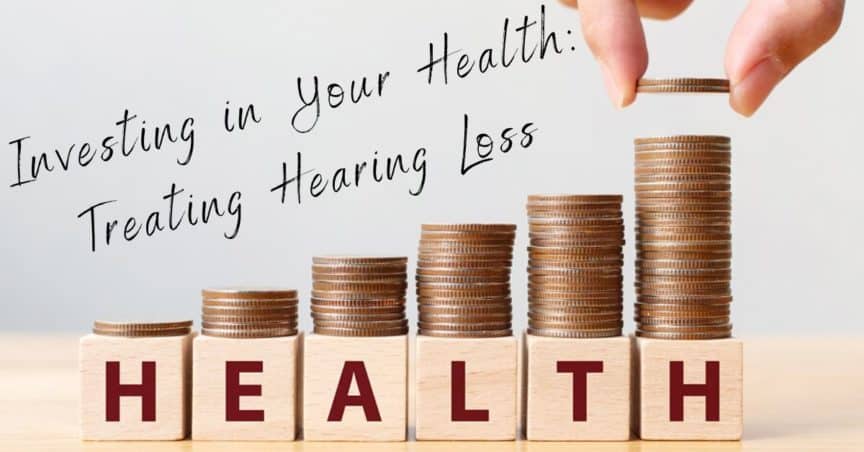- Occupational Hearing Hazards - April 27, 2020
- Understanding Noise-Induced Hearing Loss - April 18, 2020
- Understanding Noise-Induced Hearing Loss - April 12, 2020
When it comes to hearing loss, you might consider the cost of treatment to be overwhelming. Indeed, some models of hearing aids are very expensive, particularly those with the latest features and functions. Looking at the bottom line of hearing assistance can make your eyes bug out at first glance. However, recent research demonstrates the countless costs associated with hearing loss that far outweigh the price of assistance. Let’s consider some of these costs and the ways that hearing loss can take a toll on your life. When taken together, you will find that hearing assistance is more valuable than you might have thought.
Financial Costs
Although hearing aids can be expensive in some cases, hearing loss racks up great costs in many cases. Many find that hearing loss interferes with the ability to efficiently carry out work, leading to lower productivity and even sanctions within the workplace. Communication is a crucial part of our working lives, and the ability to hear instructions and appropriately respond is essential to the workflow in nearly all occupations. The cost of failing to respond to an emergency can be even greater than the financial loss due to workplace errors. If you were unable to appropriately respond to an emergency in your home, just imagine the devastating costs that might be associated.
Physical Costs
Not only does untreated hearing loss have a direct relation with financial costs, it can take a profound physical toll, as well. Being hard of hearing is correlated with a wide range of physical conditions, ranging from fatigue and stress to even higher rates of death. Other physical consequences of hearing loss can have to do with the inability to hear and respond to threats to physical safety, such as passing vehicles or even a pet walking underfoot. These physical costs are cause for serious attention, particularly when you consider the related issues that have to do with overall well being, such as eating, sleeping, and sex.
Emotional Costs
The emotional toll of hearing loss is well-documented, but it can take a number of different forms depending on the individual. Some people experience hearing loss in terms of anxiety and stress. These people can find that their fight or flight response is ramped up in public settings or at social events. This worry over missed information or hearing the wrong thing can lead to so much stress that some people start to avoid social events altogether. When this response occurs, a domino effect is set in motion. Feelings of isolation and loneliness can lead to depression and feelings of hopelessness. Although not all people with hearing loss experience these symptoms, they are quite common, and the emotional costs for friends and family members can compound the experience as well.
Mental Costs
Not only in terms of emotional well being and moods, cognitive costs have been correlated with hearing loss, as well. Those with hearing loss are more likely to develop dementia than their counterparts, and they are also more likely to see a rapid decline in cognitive ability once dementia sets in. Although researchers do not yet understand everything about the connection, they suspect that the inability to hear clearly presents a jumble of meaningless sound. That chaotic assemblage of syllables may lead to confusion that spills over into other areas of thought, as well.
With these many costs associated with hearing loss, it is more important than ever to seek treatment. Although you might initially balk at the cost of hearing aids, consider the many forms of saving you might set in motion by making the purchase. It is difficult to put a price on general wellbeing, and you might not even realize how much you stand to gain by seeking assistance. Don’t delay to set the ball in motion toward solutions. By scheduling an appointment for a hearing test, you will be able to better understand the current state of your hearing ability, as well as what options are out there for assistance. Your hearing health professional can guide you through the process of getting assistance for hearing loss and mitigating the many costs that are associated with letting it go untreated any longer.

